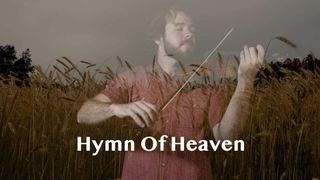Violin Hymns
Sing to him a new song; play skillfully, and shout for joy!
Jonathan Anderson
My name is Jonathan Anderson. I’m a musician with a passion for creating music that brings glory to the God of Abraham, Isaac, and Jacob. My hope is that through these hymns, others feel drawn closer to our Creator. I invite you to sing, play, and praise the Most High with me!

Youtube Channels
Sponsored by VIOLINHYMNS.COM
A surrendering hymn brought to life with rich strings and heartfelt devotion
An encouraging piece reminding us of God’s faithfulness in every season.
A peaceful, prayerful arrangement reflecting our deep longing for God’s presence.
A cinematic and reverent look toward the joy of eternity with Christ.
"And whatever you do, in word or deed, do everything in the name of the Lord Jesus, giving thanks to God the Father through him."
Colossians 3:17
Stream Violin Hymns by Jonathan Anderson
Video comments
@nataliaserrato-o3z
“I am going through the most painful moment of my life and the demon of depression and anxiety have invaded my soul. I have spent nights where I don’t think I will live to tell the tale, but God brought to my memory that passage of scripture where it says that only music could calm King Saul. and these beautiful hymns that remind me of my first love are the only thing that has given me the peace that I need so much. Praise God”
Recent Posts



CONTACT
Send me an email and I’ll get back to you soon.
We will get back to you as soon as possible.
Please try again later.













